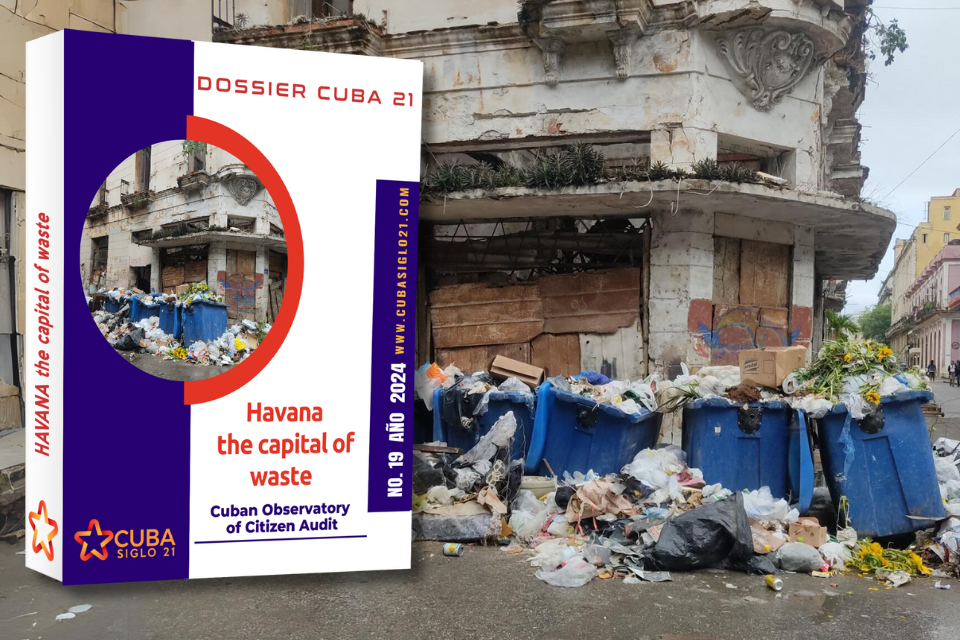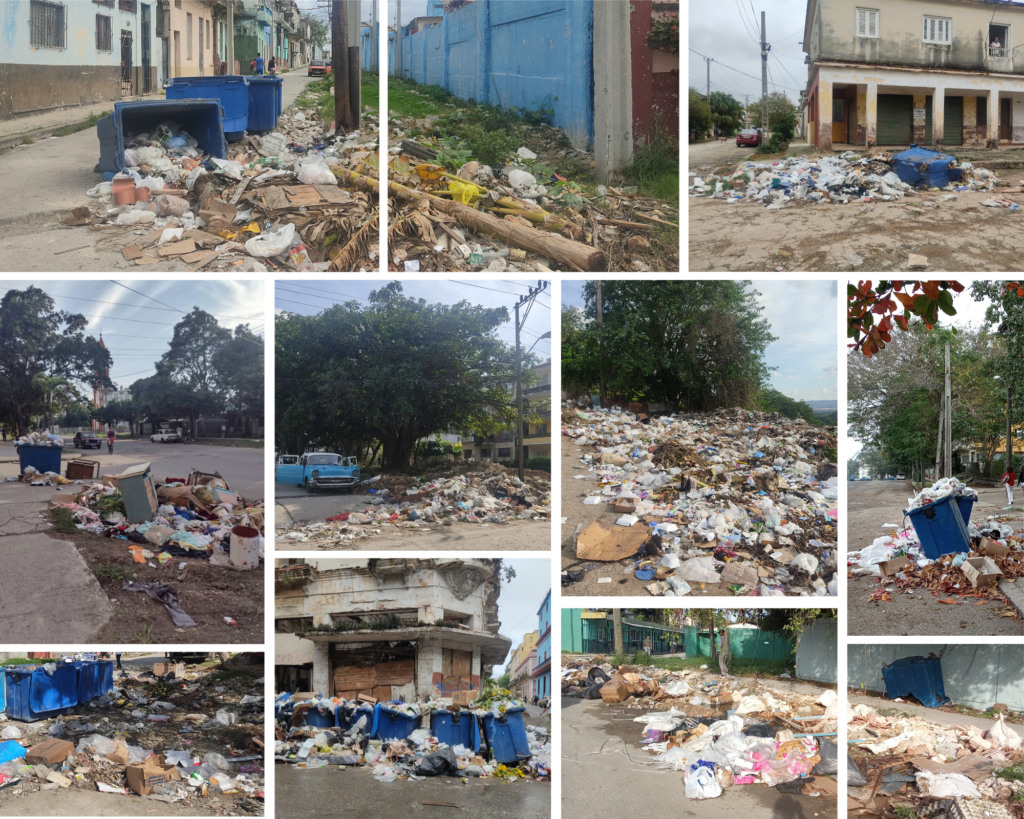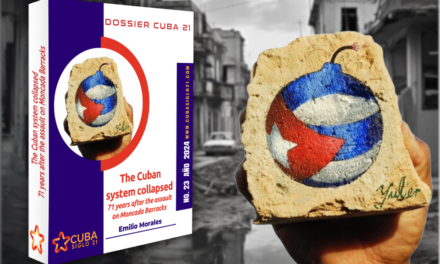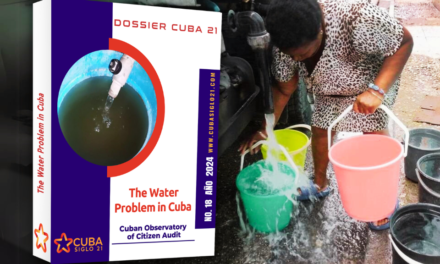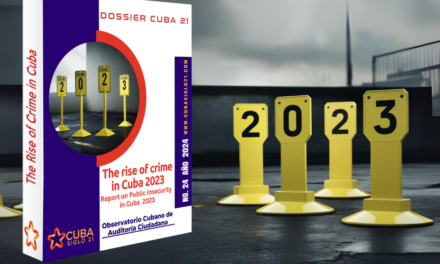Descargar informe completo en español
Downolad report in English
In Havana, more than 7,600 m3 of garbage accumulates daily in public spaces near the homes and centers that generated it. This is the equivalent of more than 3 Olympic swimming pools of garbage per day. On average, only 68% of the garbage is collected, while the rest remains in the streets creating sources of infection and even urban fires due to the production of methane gas.
The Cuban Observatory of Citizen Audit, OCAC for its acronym in Spanish, conducted a field study in the 15 municipalities of Havana to verify the crisis in waste collection in the province. The collection of nearly 100 photos is available for public use at this link.
Garbage collection is one of the dimensions of health insecurity in the country, although its critical focus is on the capital, Havana. The garbage that is not collected generates the presence of rodents, mosquitoes and other insects, carriers of diseases such as dengue and leptospirosis, which are very dangerous for health. On the other hand, only 40% of the garbage is recovered for recycling.
The government’s inability to create efficient and sustainable mechanisms, coupled with ineffective management of foreign investment opportunities and donations received, are some of the causes of the current situation.
The governor of the province, Yanet Hernández Pérez, justified the inability to respond to garbage collection by the current amount of waste from hospitals, industries, self-employed workers and MSMEs. Another public official, Reynaldo García, president of the Provincial Assembly of People’s Power of Havana, had previously stated that the problem was due to the lack of containers and collection trucks, and their high cost on the international market.
However, in 2022, the budget for solid waste management in the capital was only 6.5 million Cuban pesos, 0.83% of the province’s budget. The report lists all foreign investment attempts in the solid waste collection sector that since 2016 failed to crystallize.
Despite a $10 million donation from Japan between 2019 and 2020 and the triumphalist euphoria of government officials who claimed at the time that the new Japanese equipment would be the “solution” for garbage collection, four years later the situation is more precarious than it was then.
Onelio de Jesús Ojeda, provincial director of Communal Services of Havana, in 2023, acknowledged that there are more than 200 equipment paralyzed “for various reasons”. In addition, he blames the problem on the lack of labor force. The low salaries in the sector (3,500 CUP, equivalent to 10 USD in the informal market) mean that inmates are in charge of these tasks.
Although constant official justifications try to make people believe that maintaining an effective solid waste collection and processing system in the capital is an impossible mission, the governments of hundreds of larger, more complex cities full of private businesses and gastronomic services have succeeded.
The private sector and foreign investment play a crucial role in solid waste management, something that in the Cuban case has not been possible due to the internal blockade that has been imposed on these solutions for decades by the governance regime that has ruled until now.
The report cites Waste Management (WM) as a reference, as it evolved from an immigrant’s initiative in 1893 with a modest horse-drawn wagon for garbage collection to become the world’s largest waste disposal company, generating more than $1 billion in sales. Its success shows how economic freedom drives competitiveness and public service delivery.
OCC predicts that as long as the current unwillingness to respect citizens’ economic rights and freedoms, move towards a market economy and make foreign investment attractive, remains, it is foreseeable that health insecurity will continue to deepen in the short and medium term.
Descargar informe completo en español
Downolad report in English

